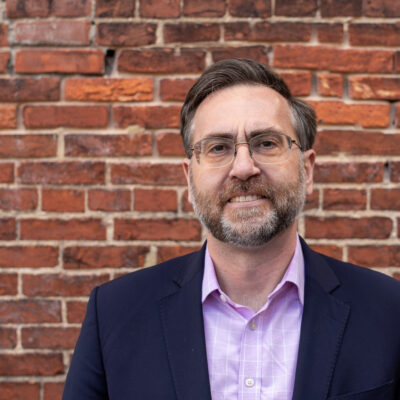On this episode of Thinking Freely, I’m excited to share with you all the experience and insights of one of the ACLU of Maryland’s key leaders.
The transcript is available below.
As a father, advocate, economist, and strategist, Corey Stottlemyer uses his skills and experience of more than 20 years to advocate for racial justice and equity at the federal, state, and local levels. As the new President of the ACLU of Marylanders Board of Directors, Corey feels that while we as an organization have achieved significant advances for the rights of people, there is still work to be done to uplift the humanity of all Marylanders who we show up for every day.
Listen directly to Corey’s mission for the organization and learn some interesting facts about him and his work in this latest episode of Thinking Freely. And join us in welcoming our new board president.
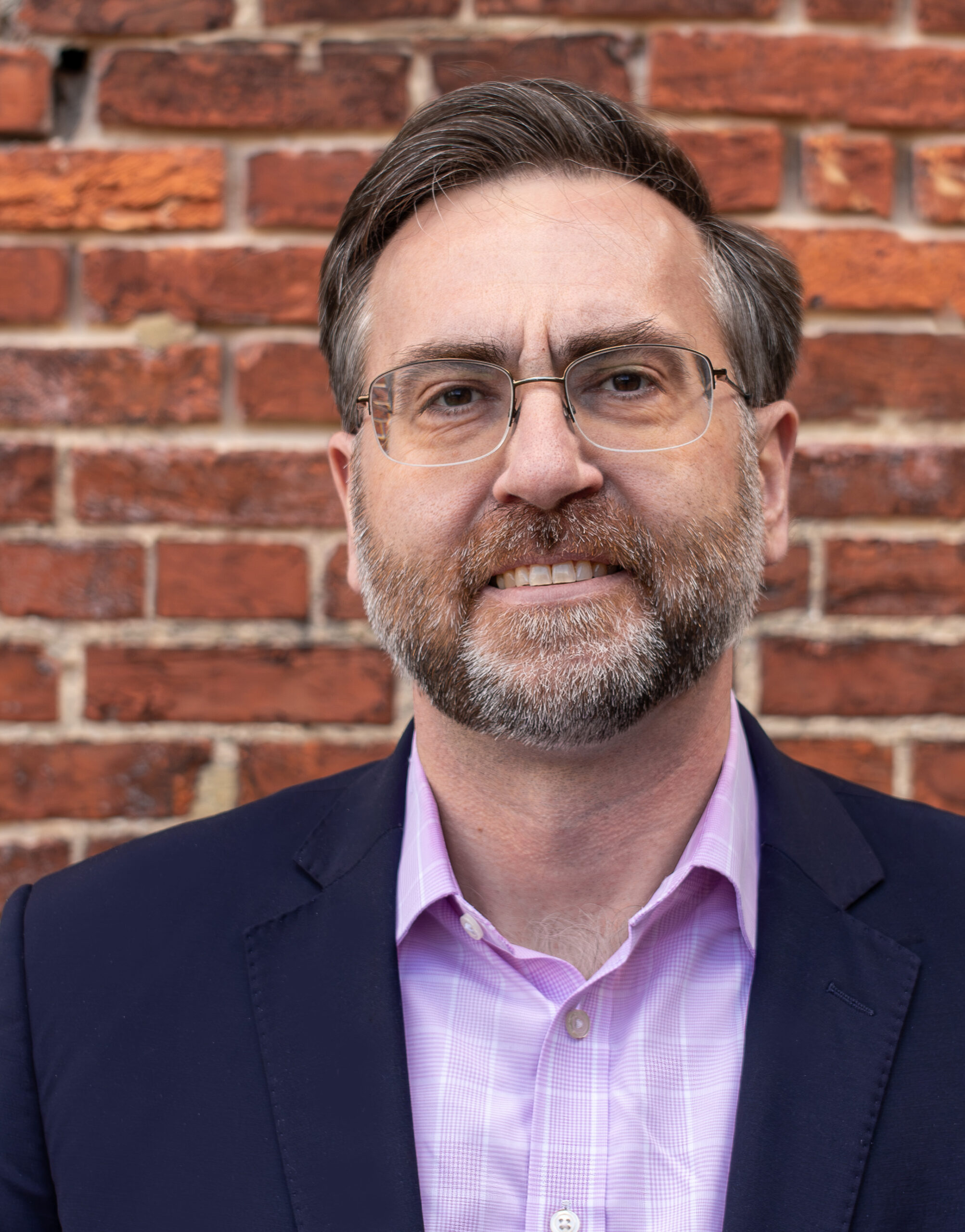
Podcast Producer & Host: Nehemiah Bester, communications strategist at ACLU of Maryland
Photo of Corey Stottlemyer by Nicole McCann. This podcast was recorded on Piscataway land.
TRANSCRIPT
00:00 – 00:28
Corey Stottlemyer
So, you know that the ACLU, we show up, we show up in communities, we show up in courtrooms, we show up in in halls of government, but also ensuring that we are ready and able to be that first responder when the rights that people have now are being taken away or there's an issue that occurs. It's a really rewarding process and an organization to be involved with.
00:28 – 00:53
Nehemiah Bester
You’re listening to Thinking Freely with the ACLU of Maryland. The show that talks about what’s happening in Maryland from the courts, to the streets and everywhere in between. I’m your host Nehemiah Bester. On this episode, I’m excited to share with you all the experience and insights of one of the ACLU of Maryland’s key leaders.
00:53 – 01:17
Nehemiah Bester
For folks who don't know, every couple of years our Board of Directors holds an election and takes nominations for its next officers and board members, including board president. This past election cycle, Corey Stottlemyer was selected among his peers as the board president of our board of directors. Corey sat down with me to share his thoughts, ideas, and vision for our organization.
01:17 – 01:49
Nehemiah Bester
Here’s some interesting facts I learned. He’s a devoted art enthusiast – be it paintings, sculptures, or the peer-to-peer art connections between Basquiat and Warhol, he can explain it. He has a daughter named Liberty, which almost sounds too perfectly aligned with his new role as president. And he is incredibly serious about improving the lives of all Marylanders. On top of that, Corey is an economist and strategist with more than 20 years of experience in policy development and program management at the federal, state, and local levels.
01:49 – 02:04
Nehemiah Bester
He has co-authored studies analyzing the economic impacts of immigration reform, as well as improved access to health care. He is also an adjunct instructor of economics and public administration at Hood College.
02:04 – 02:18
Nehemiah Bester
Thank you Corey Stottlemyer for taking time to come talk with me today for this interview. So, yeah, just to get things started okay. So, you're the new board president of the ACLU of Maryland. How did you come to be involved with the ACLU?
02:18 – 03:04
Corey Stottlemyer
Yeah. So, my career I'm an economist. I'm used to looking at what are the – quantifying the impacts of policy changes and investments on the nations, states, regions, and that's a variety of things. That can be health care, that can be infrastructure improvements, that can be tax policy. But back in 2013, one of our clients was a coalition, a very broad coalition looking at the proposed immigration reforms. And I say broad coalition, it was foundations. It was immigrant advocates. It was a business advocacy groups and even labor unions.
03:04 – 03:31
Corey Stottlemyer
And everyone was coming together because they recognized that there were significant challenges in the immigration system, and we were working with economists on both sides of the aisle to do this work. And as I kept having these conversations, it became very apparent like this was a challenge. It was holding back a lot of people, a lot of people were being left in legal limbo.
03:31 – 03:53
Corey Stottlemyer
It was holding back people's lives. It was holding back the greater economy of the United States. And I watched this firsthand in D.C. I watched these conversations. I watched they ended-up stalling in the House. And, you know, immigration is one of those where you only have it, it seems like every couple of decades you have an opportunity at significant reform.
03:53 – 04:23
Corey Stottlemyer
And we haven't had significant reform since the 1980s. And so, this was a huge opportunity, and it wasn't successful. And so, it was a major lesson for me as someone who studied government, who studied, you know, studied the policy process. And I'm used to thinking of the legislative process as being where bills are built, where laws are made, where things are, things were accomplished.
04:23 – 04:59
Corey Stottlemyer
And I realized that there was a flaw. And so, I was looking for other ways to engage other ways. Whether it was, you know, both in advocacy and also the legal system to find opportunities to have an impact. So that's what brought me looking for other opportunities and I heard that a coalition was forming in Frederick where I live called The RISE Coalition and was working with immigrants in Frederick but also throughout western Maryland. And so, I you know, I got involved.
04:59 – 05:09
Nehemiah Bester
Yeah, I was actually going to mention you know, because I'm so glad you mentioned RISE because RISE does a lot of work in immigration policy. Can you tell me a bit about your experience working with the RISE Coalition?
05:09 – 05:44
Corey Stottlemyer
Yeah. So, I was there one of their first meetings and it was, but actually I knew Sergio from when he was at Health Care for All, Access Health Care For All when he was doing that work. And I knew him from there and I was like, I think I saw it in my inbox from like on Facebook or something like that. But that was my, that was my entry point, not ACLU, you know, it was from him. And, you know, but it was, definitely again; it was a broad coalition who were looking to find ways to make Frederick better and safer for everyone.
05:44 – 06:24
Corey Stottlemyer
And, you know, we had people, we have an immigrant population in Frederick, and we were finding ways to help them navigate the legal system, advocate to elected officials, and also identify injustices that were occurring where we could provide support. And this coalition was really community driven. You know, I'm going to these meetings I’m seeing the very diverse group of people around the table and the ACLU was providing that support for them and we were helping them realize their vision and take steps.
06:24 – 06:54
Corey Stottlemyer
And so that was, that was an entry point. I always thought of ACLU as being, you know, focused on the courtroom. And here they were, working in communities and also working to advocate on behalf of communities. And it really opened my eyes to the power of what the ACLU's mission was and how that could be, how that could be increased.
06:54 – 07:06
Corey Stottlemyer
And I over the years, I've just seen the RISE Coalition continue to – the value of that to continue to multiply and then to really change the conversation about a lot of issues in Frederick.
07:06 – 07:37
Nehemiah Bester
Right, yeah. So first I think Sergio I would really appreciate the shout out. Sergio is awesome so thank you for sharing that. But I want to change gears a bit, with the time that you've been working and doing work with the ACLU. I know we just talked about the RISE Coalition, the amazing immigration work that they've been doing. But with the ACLU specifically, is there a certain project or program that, you know, you feel very deeply passionate about or that you're proud to have taken part in?
07:37 – 07:54
Corey Stottlemyer
Yeah. So, you know, the ACLU as an organization, every part of this organization, we've really been trying to figure out how to apply an anti-racism and anti-oppression lens to everything that we do and that's not an easy thing.
07:54 – 08:23
Corey Stottlemyer
There's no textbook on how to operationalize that. So, it's kind of led us all looking at our own biases. It's led us looking at how trying to figure out how we can do things better, and also having some really tough conversations. And as a board, we were looking at the work that we were doing and we were looking at our nominating process specifically and realized, okay, how can we make this better?
08:23 – 08:53
Corey Stottlemyer
Let's look at really defining and being transparent about what the expectations are, you know, documenting that. Let's look at casting a wider outreach effort to bring more people to the table. And then we also looked at the interview process and trying to standardize it and make it a better system. You know, because we're all constantly evolving.
08:53 – 09:13
Corey Stottlemyer
We can all do better and this was an example. We recently brought on 13 new board members, people who are representing a variety of the communities that we serve across the across the state. And they're bringing skills to the table that are going to really position the organization to be successful for many years to come.
09:13 – 09:33
Nehemiah Bester
Yeah, yeah. So, I love what you said about how, you know, we were making sure that we're reviewing the organization and looking through a lens of anti-racism and anti-oppression and also love what you said about our board members. I think this is one of our most diverse boards that we've actually had. So, I think that's a huge accomplishment.
09:33 – 09:55
Nehemiah Bester
Can you talk about any sort of you know, obviously we do, there's a lot of cases, there's a lot of work that's going on. But is there a recent or current ACLU of Maryland issue or case that has the meant the most to you? I know there's a lot and I don't want you to pick favorites, but if you had one that meant a lot to you, what would it be and why?
09:55 – 10:21
Corey Stottlemyer
Yeah, I am constantly, one of the true joys is to hear about new projects and new cases that that we are working on and communities that we are lifting up. And it's just, it's just enormous. But one that really wasn't on my radar screen came up and I've been following closely is our work with the NAACP and the community in Federalsburg.
10:21 – 11:20
Corey Stottlemyer
And in this case, you have a majority a Black community that has never had representation at an elected office. And we you know; we were looking for restorative justice. So, we you know, we entered and pursued that. And so, it was the idea that we were taking this more and looking at how we can look at restorative justice over time and not just one case, but things that are going to change the community forever and really make a lasting impact on their voting access and access to voting and lifting up and making sure that or helping position the community to be more engaged and to have a greater say in the elected process.
11:18 – 11:48
Nehemiah Bester
No. Yeah, I agree with you like tenfold because the Fredericksburg case was also very personal to me. Like we did – myself, Nick, Debbie, Meredith, and others and like we did a lot of work to make sure that, you know, true representation was given to this town because like 200 years, like, come on, that's something, that can't be okay. There’s clearly an issue there. And so, it's awesome to see that restorative justice for these for these Black residents in Federalsburg.
11:48 – 12:38
Corey Stottlemyer
And I will also say and I didn't put this, but you know this is kind of like the Sergio thing, you know, I recognize as I was going through that, what an enormous blind spot I had in it. My mother grew up on the Eastern Shore. I, you know, was certainly aware of the atrocities and the things that have occurred on the Eastern Shore but I wasn't fully aware, you know, and it caused me to look at the biases that we all have or, you know, that I had. And really understand the, the history that occurred there and not just Federalsburg but in many parts of the shore. And it was it was it was a really powerful experience for me.
12:38 – 12:55
Nehemiah Bester
So going with that, do you have a specific vision for the ACLU in the coming years? And, you know, kind of coupled with that, what is your vision for our state as it relates to civil liberties and civil rights?
12:55 – 13:24
Corey Stottlemyer
Well, you know, we've had a lot of success. And you look at our recent annual report and it's just apparent just how much success we have had. But there's still so much work to do. You know, I hear that statistic more often than I like that we have more incarcerated Black people in the state as a percentage of our population than any other state.
13:24 – 14:24
Corey Stottlemyer
We have enormous disparities in in schools in Baltimore City and throughout the state, in funding and quality of education. There are challenges, too, to universal suffrage and voting rights, and these are all things. And we're right now we're hearing about the First Amendment every day in the news, everywhere. And so, it just reemphasizes how much we have to you know, how much more work there is to do. How we need to focus on our long-term goals, about raising up humanity in the state, but also ensuring that we are ready and able to be that first responder when the rights that people have now are being taken away or there's an issue that that occurs. And we need to be ready to stand up for that.
14:25 – 14:46
Nehemiah Bester
Yeah, I love hearing that and hearing your vision for, you know, our state because, you know, I think we, we try our best to do a lot of really great things, but the work is not over, you know. So, what's a great takeaway You would want someone who reads, listeners or watching this interview to leave with? What message would that be?
14:46 – 15:01
Corey Stottlemyer
So, you know that the ACLU, we show up, we show up in communities, we show up in courtrooms, we show up in halls of government. And we are we are making a true difference to uplift the humanity of Marylanders.
15:01 – 15:22
Corey Stottlemyer
And, you know, if you're a donor, just thank you so much. Thank you so much for giving, investing in the organization and helping make all that we've done accomplishable. And then if you're not a member, you know, please join us at the table. We have a strong membership here in the state. We have a lot of work to do, and it's a really rewarding process and an organization to be involved with.
15:23 – 15:46
Nehemiah Bester
Okay, last question. Do you have any hobbies? Do you have any things that you'd like to do or anything? Like sometimes I try to end with a more fun question. Anything you like to do or anything you want to mention in your downtime if you have downtime?
15:46 – 16:14
Corey Stottlemyer
So I, I have some really weird, but some of them, you know, because I say this here I am, I am definitely, I'm a privileged white man in the state of Maryland. And some of my hobbies sound like I'm a privileged white man in the state of Maryland. I'm actually in an art forecasting league where we look at fine art and select how they're going to do at auction.
16:14 – 16:18
Nehemiah Bester
Really? Wow yeah, I've never ever heard of that before.
16:18 – 17:01
Corey Stottlemyer
Well it's not as popular as fantasy football or anything like that but, that's probably obscure and just shows just you know the things I do. But you know, I, so another thing I'll mention is that I'm so proud, I'm a single co-parent. I've got two awesome kids. My son is 15 and my daughter is almost 14. Her name is actually Liberty.
17:01 – 17:26
Corey Stottlemyer
And she – both my kids – I got into this work for me and to make a difference and to be engaged. But as they get older, I just look at making sure that I'm doing the work for them and really focus on handing off the baton because there's so much work to do. And we just need to continue to, to focus on that.
17:26 – 17:33
Nehemiah Bester
Yeah. With a name like Liberty that's, that's true commitment.
17:33 – 17:46
Corey Stottlemyer
So her mother is a suffragette born 100 years too late. That's how our daughter wound up with the name Liberty.
17:46 – 17:50
Nehemiah Bester
I love to hear it. But thank you Corey, so much for your time. This was an incredible interview. Thank you for your leadership, and yeah, thanks for talking to me.
17:50 – 18:22
Corey Stottlemyer
Yeah, thank you. Thank you. It was just a great experience.
18:22 – 18:33
Nehemiah Bester
For more information, visit aclu-md.org. If you liked this conversation, please feel free to like or subscribe to this channel, and go follow us on all our ACLU of Maryland platforms. This podcast was recorded on Piscataway Land. I’m Nehemiah Bester, the host and producer of Thinking Freely, catch y’all on the next one.
Thinking Freely, ACLU of Maryland's podcast, informs Marylanders about what's happening politically – from the courts to the streets – so they can get involved and realize a more equitable Maryland for all.
SUBSCRIBE ON:
Apple Podcast | Spotify | SoundCloud | Stitcher | Listen Notes | RadioPublic | Pandora
Related Content
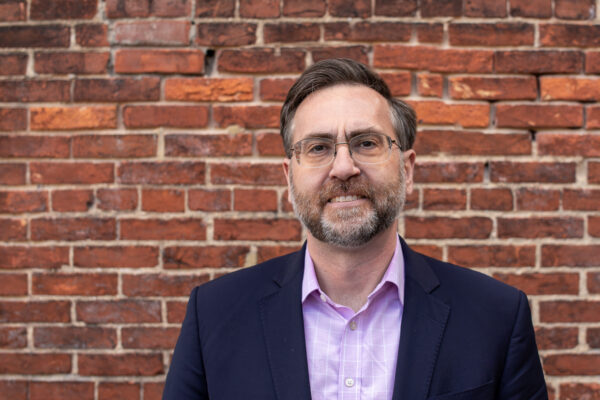
- Voting Rights and Elections|
- +1 Issue
Welcome our new Board President, Corey Stottlemyer
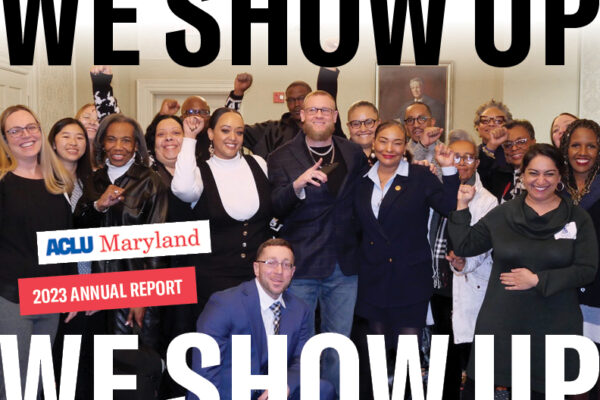
2023 Annual Report

- Immigrants' Rights
RISE UP: How Black and Brown immigrants are gaining power in Frederick
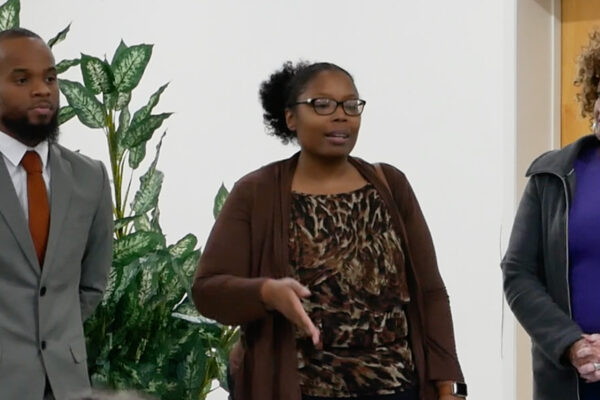
- Voting Rights and Elections|
- +1 Issue

